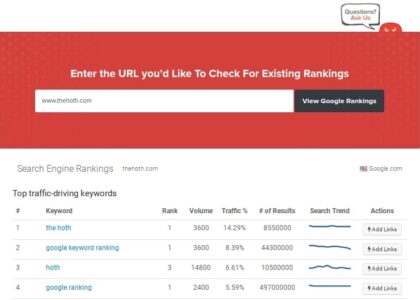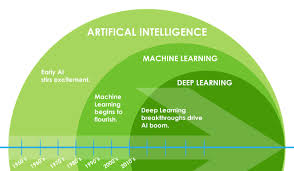The Power of Data Analysis and Reporting
Data analysis and reporting play a crucial role in today’s data-driven world. Businesses across various industries rely on the insights derived from data to make informed decisions, drive growth, and stay ahead of the competition.
Understanding Data Analysis
Data analysis involves examining raw data to uncover patterns, trends, and insights that can be used to inform business strategies. By using various statistical and analytical techniques, businesses can gain a deeper understanding of their operations, customers, and market dynamics.
The Importance of Reporting
Reporting is the process of presenting the findings from data analysis in a clear and concise manner. Effective reporting helps stakeholders interpret complex data sets, track key performance indicators (KPIs), and make data-driven decisions with confidence.
Benefits of Data Analysis and Reporting
- Improved Decision-Making: Data analysis provides valuable insights that enable businesses to make strategic decisions based on evidence rather than intuition.
- Enhanced Performance Monitoring: Reporting allows businesses to track progress towards goals, identify areas for improvement, and measure success against predefined metrics.
- Better Targeting: By analysing customer data, businesses can tailor their marketing efforts to target specific audiences more effectively.
- Risk Mitigation: Data analysis helps identify potential risks and opportunities early on, allowing businesses to proactively mitigate risks and capitalise on emerging trends.
- Competitive Advantage: Businesses that leverage data analysis and reporting are better positioned to outperform competitors by making informed decisions quickly.
Conclusion
In conclusion, data analysis and reporting are essential tools for modern businesses looking to harness the power of data. By investing in robust analytics capabilities and effective reporting mechanisms, organisations can unlock valuable insights that drive growth, innovation, and success in today’s competitive landscape.
Enhancing Business Success: The Benefits of Data Analysis and Reporting
- Data analysis enables informed decision-making based on evidence.
- Reporting helps track key performance indicators (KPIs) for business success.
- Data analysis enhances performance monitoring and goal tracking.
- Reporting facilitates clear communication of complex data insights.
- Data analysis improves targeting by tailoring strategies to specific audiences.
- Reporting aids in risk mitigation by identifying potential threats early on.
- Data analysis provides a competitive advantage through data-driven strategies.
Challenges in Data Analysis and Reporting: Complexity, Cost, Privacy Concerns, Time, and Accuracy Issues
Data analysis enables informed decision-making based on evidence.
Data analysis empowers organisations to make well-informed decisions grounded in evidence rather than intuition. By analysing data sets using statistical and analytical techniques, businesses can extract valuable insights that guide strategic choices and operational improvements. This evidence-based approach ensures that decisions are backed by concrete data, leading to more effective outcomes and a competitive edge in today’s data-driven business environment.
Reporting helps track key performance indicators (KPIs) for business success.
Reporting plays a pivotal role in business success by enabling organisations to track key performance indicators (KPIs) effectively. By regularly monitoring and analysing KPIs through comprehensive reporting, businesses can gain valuable insights into their performance, identify areas of strength and weakness, and make data-driven decisions to drive continuous improvement and achieve their strategic objectives. The ability to track KPIs through reporting not only enhances operational efficiency but also empowers businesses to stay agile, adapt to market changes, and maintain a competitive edge in today’s dynamic business environment.
Data analysis enhances performance monitoring and goal tracking.
Data analysis plays a pivotal role in enhancing performance monitoring and goal tracking for businesses. By analysing key metrics and performance indicators, organisations can gain valuable insights into their progress towards achieving objectives. This allows for real-time adjustments to strategies, identification of areas needing improvement, and the ability to measure success against predefined targets accurately. With data analysis, businesses can proactively monitor their performance, make informed decisions, and stay on track to reach their goals effectively.
Reporting facilitates clear communication of complex data insights.
Reporting plays a crucial role in facilitating clear communication of complex data insights. By presenting the findings of data analysis in a concise and understandable format, reporting enables stakeholders to grasp the significance of the data and its implications for decision-making. Clear and well-structured reports help streamline communication within an organisation, ensuring that key insights are effectively conveyed to relevant parties, leading to informed actions and strategic planning based on data-driven evidence.
Data analysis improves targeting by tailoring strategies to specific audiences.
Data analysis enhances targeting by enabling businesses to customise their strategies to cater to specific audiences effectively. By analysing demographic, behavioural, and preference data, organisations can gain valuable insights into their target market segments. This allows businesses to create personalised marketing campaigns, products, and services that resonate with their audience’s needs and preferences. Through targeted approaches informed by data analysis, businesses can improve engagement, conversion rates, and overall customer satisfaction, ultimately driving success and growth in their market.
Reporting aids in risk mitigation by identifying potential threats early on.
Reporting plays a crucial role in risk mitigation by enabling businesses to identify potential threats at an early stage. By analysing data and presenting key insights through reports, organisations can proactively assess risks, vulnerabilities, and emerging trends that may impact their operations. This early detection allows businesses to implement preventive measures, develop contingency plans, and make informed decisions to mitigate risks effectively, ultimately safeguarding their assets and maintaining business continuity.
Data analysis provides a competitive advantage through data-driven strategies.
Data analysis offers a significant competitive advantage by empowering businesses to develop data-driven strategies. By extracting valuable insights from vast amounts of data, organisations can make informed decisions, identify trends, and anticipate market shifts with greater precision. This strategic use of data enables companies to stay agile, respond quickly to changing conditions, and ultimately outperform competitors who rely on intuition rather than evidence-based decision-making.
Complexity
Data analysis and reporting present a significant challenge in terms of complexity. The process often demands specialised skills and expertise to navigate through vast datasets, apply advanced analytical techniques, and extract valuable insights that can inform decision-making. Without the necessary knowledge and experience, interpreting data accurately and deriving meaningful conclusions can prove to be a daunting task for many individuals and organisations. The complexity inherent in data analysis and reporting underscores the importance of investing in training and resources to ensure that data-driven decisions are made with precision and confidence.
Cost
Implementing data analysis tools and reporting systems can present a significant challenge in terms of cost, particularly for small businesses operating with constrained resources. The initial investment required to set up and maintain such technologies may deter smaller enterprises from fully utilising the benefits of data analysis and reporting. This financial barrier could hinder their ability to leverage valuable insights from data, potentially putting them at a disadvantage compared to larger competitors with greater financial capabilities.
Data Privacy Concerns
Handling sensitive data for analysis raises significant data privacy concerns. Businesses must navigate a complex landscape of regulations and ethical considerations to safeguard the privacy and confidentiality of individuals’ information. Implementing stringent measures, such as data encryption, access controls, and anonymisation techniques, is essential to ensure compliance with data protection laws and maintain trust with customers. Prioritising data privacy in the process of data analysis and reporting is crucial to mitigate risks of data breaches and uphold the integrity of sensitive information.
Time-Consuming
One significant drawback of data analysis and reporting is its time-consuming nature. The process of gathering, refining, and scrutinising data can be a lengthy and resource-intensive task, potentially causing delays in crucial decision-making processes within an organisation. The time spent on data preparation and analysis may hinder the agility and responsiveness of a business, impacting its ability to adapt quickly to changing market conditions or seize emerging opportunities.
Accuracy Challenges
Accuracy Challenges in data analysis and reporting pose a significant risk to businesses. When dealing with inaccurate or incomplete data inputs, the integrity of the entire analysis process is compromised, leading to flawed reporting and unreliable insights. Such inaccuracies can mislead decision-makers and result in misguided strategic choices that may have detrimental effects on the business. Ensuring data accuracy and completeness is paramount to deriving meaningful and trustworthy conclusions from the analysis, thereby safeguarding the reliability of the decision-making process.






